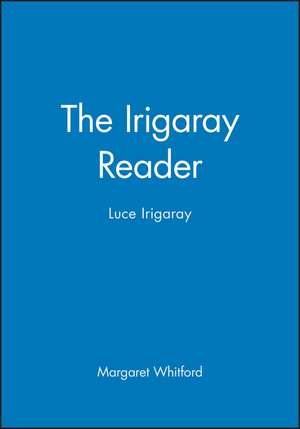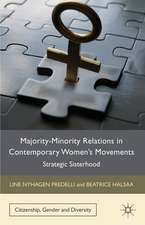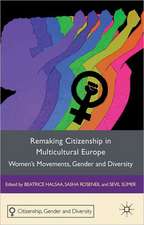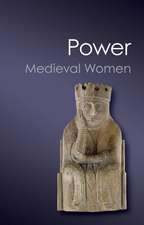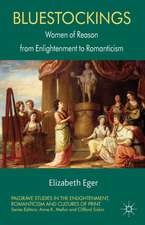The Irigaray Reader: Luce Irigaray: Wiley Blackwell Readers
Autor M Whitforden Limba Engleză Paperback – 28 oct 1991
Irigaray is one of the most well know and controversial of radical thinkers, who has contributed to the feminist challenge to western thought in the areas of linguistics, psychoanalysis, philosophy and theories of representation. Yet most of her major work remains still untranslated.
Most of the essays in The Irigaray reader appear for the first time in English, spanning Irigaray's output from the publication of Speculum in 1974 to some of her most recent interventions. The introduction provides an overview of Irgaray's work, while each of the three sections is prefaced by contextualising comments, enabling the reder t osituate the extracts both within Iragara's thoght and also within feminist theory.
For those who know Irigaray only from her work in the seventies (Speculum and This Sex Which is not One) The Reader will provide an invaluable initial approach to her evolution is a thinker throughout the eighties.
Din seria Wiley Blackwell Readers
-
 Preț: 175.73 lei
Preț: 175.73 lei -
 Preț: 141.99 lei
Preț: 141.99 lei -
 Preț: 286.68 lei
Preț: 286.68 lei -
 Preț: 326.58 lei
Preț: 326.58 lei -
 Preț: 339.65 lei
Preț: 339.65 lei - 9%
 Preț: 936.66 lei
Preț: 936.66 lei - 23%
 Preț: 906.86 lei
Preț: 906.86 lei -
 Preț: 436.56 lei
Preț: 436.56 lei - 27%
 Preț: 713.14 lei
Preț: 713.14 lei -
 Preț: 439.45 lei
Preț: 439.45 lei -
 Preț: 446.36 lei
Preț: 446.36 lei -
 Preț: 447.16 lei
Preț: 447.16 lei - 27%
 Preț: 972.07 lei
Preț: 972.07 lei - 23%
 Preț: 462.55 lei
Preț: 462.55 lei -
 Preț: 329.73 lei
Preț: 329.73 lei - 27%
 Preț: 848.93 lei
Preț: 848.93 lei -
 Preț: 434.02 lei
Preț: 434.02 lei -
 Preț: 423.36 lei
Preț: 423.36 lei -
 Preț: 463.31 lei
Preț: 463.31 lei -
 Preț: 480.02 lei
Preț: 480.02 lei -
 Preț: 435.24 lei
Preț: 435.24 lei -
 Preț: 438.68 lei
Preț: 438.68 lei -
 Preț: 467.57 lei
Preț: 467.57 lei -
 Preț: 221.01 lei
Preț: 221.01 lei -
 Preț: 453.64 lei
Preț: 453.64 lei -
 Preț: 451.83 lei
Preț: 451.83 lei -
 Preț: 458.31 lei
Preț: 458.31 lei -
 Preț: 415.01 lei
Preț: 415.01 lei -
 Preț: 421.76 lei
Preț: 421.76 lei - 23%
 Preț: 446.19 lei
Preț: 446.19 lei - 27%
 Preț: 769.01 lei
Preț: 769.01 lei -
 Preț: 347.46 lei
Preț: 347.46 lei -
 Preț: 457.89 lei
Preț: 457.89 lei - 31%
 Preț: 763.73 lei
Preț: 763.73 lei - 33%
 Preț: 691.35 lei
Preț: 691.35 lei
Preț: 381.85 lei
Nou
73.07€ • 76.48$ • 60.81£
Carte tipărită la comandă
Livrare economică 31 martie-14 aprilie
Specificații
ISBN-10: 063117043X
Pagini: 244
Dimensiuni: 152 x 229 x 13 mm
Greutate: 0.36 kg
Editura: Wiley
Seria Wiley Blackwell Readers
Locul publicării:Chichester, United Kingdom
